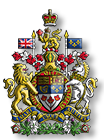I Want to Know More

In order to protect public servants who report wrongdoing from reprisals, the Government of Canada created the Public Servants Disclosure Protection Tribunal. The Tribunal was established following the coming into force of the Public Servants Disclosure Protection Act in April, 2007.
The purpose of the Act is to increase Canadian confidence in the integrity of public servants by encouraging them to report wrongdoing. It establishes procedures for the disclosure of wrongdoing and the protection of public servants who report wrongdoing.
The Tribunal protects public servants by hearing reprisals complaints referred by the Public Sector Integrity Commissioner. The Tribunal consists of Federal Court judges who have the power to order remedies in favor of complainants and disciplinary actions against persons who have taken the reprisals. Public servants who believe they are the subject of reprisals because they have reported wrongdoing must file a complaint with the Public Sector Integrity Commissioner. The Commissioner must refer complaints to the Tribunal if there are reasonable grounds to believe that reprisals occurred.
The Tribunal is not involved in the wrongdoing disclosure process. Public servants can report wrongdoings to their supervisor, the senior officer designated by the chief executive of their organization or the Public Sector Integrity Commissioner.
The Government of Canada’s Values and Ethics of the Public Service Web section also provides additional information on how to report wrongdoing in the public sector, and information on the Public Servants Disclosure Protection Act and the disclosure process.
For more information related to the Tribunal’s role, please consult the Reprisal Complaint Process.
- Date modified:
